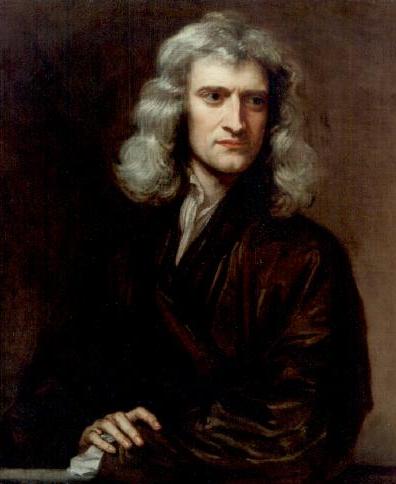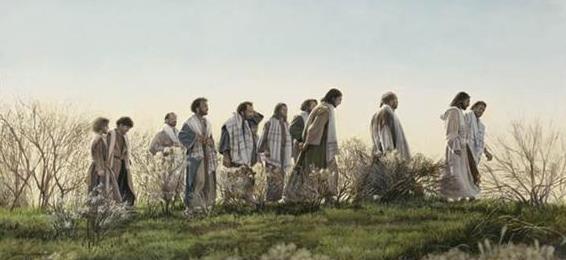Dear Brothers and Sisters,
 I’ve always been delighted by the cool gadgets displayed in Star Trek since it began in 1966. Today, some of those gadgets are part of our everyday lives—things like cell phones, voice recognition software, translators, medical sensors, wireless door openers, video conferencing, holograms, 3-D printers, and hydro-spray injectors. Many of us “trekkers” wish someone would invent a transporter to beam us from one location to another. That would do away with the need for long airplane and automobile rides!
I’ve always been delighted by the cool gadgets displayed in Star Trek since it began in 1966. Today, some of those gadgets are part of our everyday lives—things like cell phones, voice recognition software, translators, medical sensors, wireless door openers, video conferencing, holograms, 3-D printers, and hydro-spray injectors. Many of us “trekkers” wish someone would invent a transporter to beam us from one location to another. That would do away with the need for long airplane and automobile rides!
The Guinness Book of Answers notes that the vast majority of scientific inventions originated in Europe, the UK and the USA. Many of these have been listed on the Eupedia website. Though some people view technology as “a tool of the devil,” the truth is that many of the advances in technology resulted from the work of scientists holding a Christian worldview—men like Copernicus, Galileo, Kepler, Newton and Pasteur. These men dedicated their lives to studying what they considered to be God’s handiwork and the fruit of their labors have assisted all humanity, including the work of the church in advancing its mission (think of such technologies as the printing press, rapid travel and mass media).

public domain
via Wikimedia Commons
Despite the widely-held myth that Christianity and science are hopelessly at odds, the facts say otherwise. In his 1925 lectures, English mathematician and philosopher Alfred North Whitehead pointed out that Christianity is “the mother of science because of the insistence on the rationality of God.” The basis of modern physics was established by such Christians as Newton, Gauss, Faraday, Maxwell, and Lord Kelvin, to name a few. God who created everything that science studies, gave humanity the ability to understand what he created.
Instead of a conflict between Christianity and science, what actually exists is a conflict between opposing worldviews. A prime example is the conflict between a biblical worldview and one known as “Greek philosophical dualism.” This form of dualism, which reaches as far back as Plato and Aristotle, posits two spheres of reality—a transcendent sphere that is impersonal, unreachable and unknowable; and a human sphere that is finite and temporary (and thus has no future). By New Testament times, this worldview posited the separation of mind from body, and the spiritual (which is good) from the material (which is evil). The human sphere of material things was seen as a “prison house” of the soul with human persons regarded ultimately as unreal. Temporary individual souls would be released at death to be absorbed back into the impersonal transcendent sphere. Within this dualistic worldview there is no place for a personal God, and if there were a God who “lives” in the transcendent realm, he certainly would have nothing directly to do with the human/material realm, much less becoming incarnate in that realm in order to provide salvation for humanity.
In the time of the New Testament and beyond, biblical Christianity directly challenged Greek philosophical dualism by pointing to the God revealed in Jesus Christ who is Creator, Sustainer and Redeemer of the entire cosmos. Nevertheless, dualism flourishes in our day, positing a gap between God and creation assumed to be unbridgeable even by God himself. It asserts that God cannot be known, or could not come to us in person to reveal himself in human form—not even in the person of Jesus.
Unfortunately, and especially since Darwin, some scientists, embracing the ungrounded philosophical assumptions of this dualism, have declared that only empirical truths of material things can be truly known. That is quite ironic, because in making that declaration they rely on philosophical assumptions that have no empirical proof. Whether individual scientists believe it or not, the scientific method itself depends on God. Science and technology are based on a real, ordered, and amazingly stable, rational (knowable) cosmos. Science and technology wouldn’t even be possible without these predictable realities. Said another way, scientific discovery and the technologies that result are possible only because scientists have faith that there are rational, reliable laws in operation that are constant and discoverable, and that the human mind is capable of actually knowing things that are external to that mind.
Scientists do not make the laws of nature—rather they are able to discover those laws because there is a real, rational, interactive dynamic at work in the universe. The Christian worldview can identify who made those laws of nature, and as Christians, we know there is more than just natural law. Our theology of nature gives us good reasons to study and learn about God’s creation by honest experimentation. That theology explains why scientists, inventors and entrepreneurs discover new ways to do new things, resulting in the amazing technologies that intrigue and benefit us. The complex and dynamic laws of nature that scientists discover and depend upon for their methodical exploration are part of God’s trinitarian, creative and sustaining plan: from the Father, spoken through the Son (the living Word), in the power and breath of the Holy Spirit.
I’m reminded here of what the apostle Paul wrote to the churches in Rome: “[God’s] invisible attributes, namely, his eternal power and divine nature, have been clearly perceived, ever since the creation of the world, in the things that have been made” (Romans 1:20 ESV). God is immaterial (spiritual, not physical), invisible, powerful and transcendent over his creation. Nevertheless, his fingerprints, so to speak, are all over that creation. We see this in the complex genetic code in DNA and the way the atomic structure behaves. It is from the created world that all technology is born. As Paul states, there simply is no justifiable reason to outright deny the existence of a creator God. To the contrary, there is every reason to consider the claims of Jesus preserved in Holy Scripture and declared by the Church that God is Creator, Reconciler and Redeemer.

While it certainly is true that science and technology have been used for horrific evil, it is also true that they have been used for great good. The behaviors and motives of the users are the deciding factor. On the side of what is good, our own denomination uses computer technology to multiply our effectiveness in spreading the good news of Jesus to the world. Our GCI.org website gets thousands of pageviews daily from hundreds of visitors. Every week, we receive emails from independent churches and students of Scripture who say they’ve been greatly helped by what they find on our website. (For a good use of computer technology, see “How technology enhances prayer” under the Church Development heading at left, above).
Some warn against the continued expansion of certain technologies. Atheist-leaning physicist and cosmologist, Stephen Hawking, warned that robots powered by artificial intelligence could overtake humans in the next 100 years, going so far as to say, “The development of full artificial intelligence could spell the end of the human race.” Steve Wozniak who co-founded Apple, made a similar comment: “Computers are going to take over from humans, no question. If we build these devices to take care of everything for us, eventually they’ll think faster than us and they’ll get rid of the slow humans to run companies more efficiently.” Personally, I think we’re a long way away from inventing a robot that becomes self-aware enough to cast its human operators aside and take over the world!
I was gratified to see in a current sci-fi series an advanced robot that prays to God. That reminds me of the declaration in Psalm 148 that even inanimate objects like mountains and hills raise their voices in praise to God. Speaking of praising God, I recommend The Joyful Christian, a compilation of quotations from C.S. Lewis showing his deep appreciation for praising God for all things. I join him in that praise by thanking God for his gifts of science and technology—gifts that point to the wonderfully creative and inventive spirit that God has given humankind. May we always use these gifts for God’s glory.
Praising God with you,
Joseph Tkach











